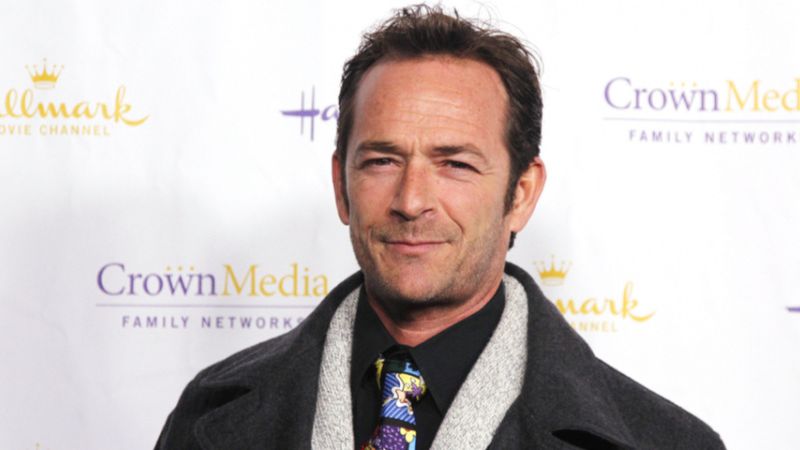When news broke late last week that actor Luke Perry had suffered a stroke at the age of 52, it was shocking. It was shocking to hear that a beloved actor had experienced a sudden stroke, and even more shocking that it had happened to him at such a relatively young age. We were very sad to learn that Mr. Perry did not survive his stroke, a fate that befalls about 140,000 Americans each year.
Many people associate strokes with old age, but is it possible that young people, like Mr. Perry, can also be susceptible to them?
In short, the answer is yes.
According to data from the American Heart Association, men and women experience strokes as young as 20 years old. Although the percentage of 20-39 year-olds who experience strokes is just 0.9 percent, it more than doubles for those aged 40-59, going up to 4.1 percent.
Understanding What Causes A Stroke
The Mayo Clinic describes a stroke as a medical emergency in which the “blood supply to part of your brain is interrupted or reduced, depriving brain tissue of oxygen and nutrients.” Strokes can be fatal, so every minute is crucial to recovery.
There are a variety of stroke types that affect people—ischemic, hemorrhagic, and transient ischemic attack (TIA). The majority of strokes that occur are ischemic, which “occur when the arteries to your brain become narrowed or blocked, causing severely reduced blood flow (ischemia).” A hemorrhagic stroke occurs when a blood vessel in the brain ruptures or leaks. What causes a stroke that is hemorrhagic is high blood pressure, overtreatment of anticoagulants, and aneurysms that stem from the walls of your blood vessels. TIA strokes are also known as mini-strokes and often go unnoticed, causing no permanent damage.
Regardless of which type of stroke you experience, once you’ve had a stroke there is a strong likelihood of having another. If you’ve already been treated for a stroke, you should definitely invest in a medical alert device that can provide you with medical monitoring at the push of a button, day or night. When it comes to strokes, every second matters, so a medical alert device could end up saving your life.
What Are The Early Signs Of A Stroke?
Unfortunately, for many people, early signs of stroke are hard to detect. But since strokes affect the brain, the most noticeable signs of a stroke usually have an impact on speech and movement. If you notice a friend or loved one exhibit the following symptoms, get them medical care immediately:
-
Trouble speaking or understanding others. Language can come out jumbled, with the person speaking but not making any sense. Or, early signs of stroke can also be marked by confusion, having difficulty understanding others when they are talking.
-
Feeling numb, tingly, or paralyzed on one side of the body. Stroke typically affects only one side of the body, so if your hands, face, arms, or legs suddenly go numb on one side of the body, it could be the signs of a stroke.
-
Blurred vision. Blurred or blackened vision in one or both eyes, or seeing double is also typical signs of a stroke.
-
Sudden severe headache, accompanied by vomiting, or dizziness can be symptomatic of having a stroke.
-
Difficulty with balance and coordination. If you’re suddenly having trouble walking, stumbling, feeling dizzy, or experiencing a loss of balance and coordination it can also be signs of a stroke.
Doctors and stroke advocates have come up with an acronym to help people remember when they need to seek immediate medical attention for a stroke: FAST. This stands for Face (does it look droopy on one side?), Arms (does only one stay lifted over your head?), Speech (is it slurred or strange?) and Time (if you answer yes to any of these questions, time is of the essence and you must call 911 immediately).
Know The Risk Factors For Stroke Prevention
There is no way to control your body 100% of the time, however, you can take preventative measures to try and lessen your chances of experiencing a stroke. If you are overweight, physically inactive, a heavy drinker or drug user, or a smoker you have a higher risk of experiencing a stroke at a young age. In addition, if your doctor has diagnosed you with high blood pressure, high cholesterol, diabetes, sleep apnea, or cardiovascular disease, you are also at high risk of experiencing a stroke.
Taking the necessary steps to make lifestyle changes—from incorporating more exercise into your daily routine, to eating fresh fruits and vegetable and cutting back on red meat, to quitting a smoking habit, to controlling your diabetes—can reduce your risk of stroke and add years to your life.

